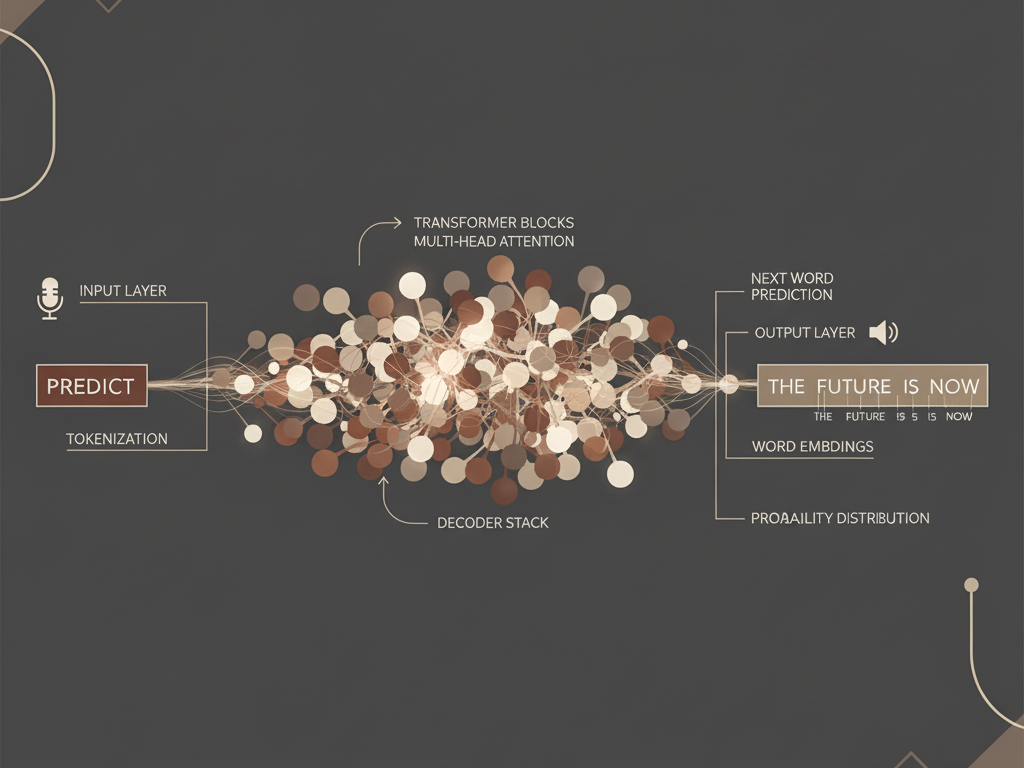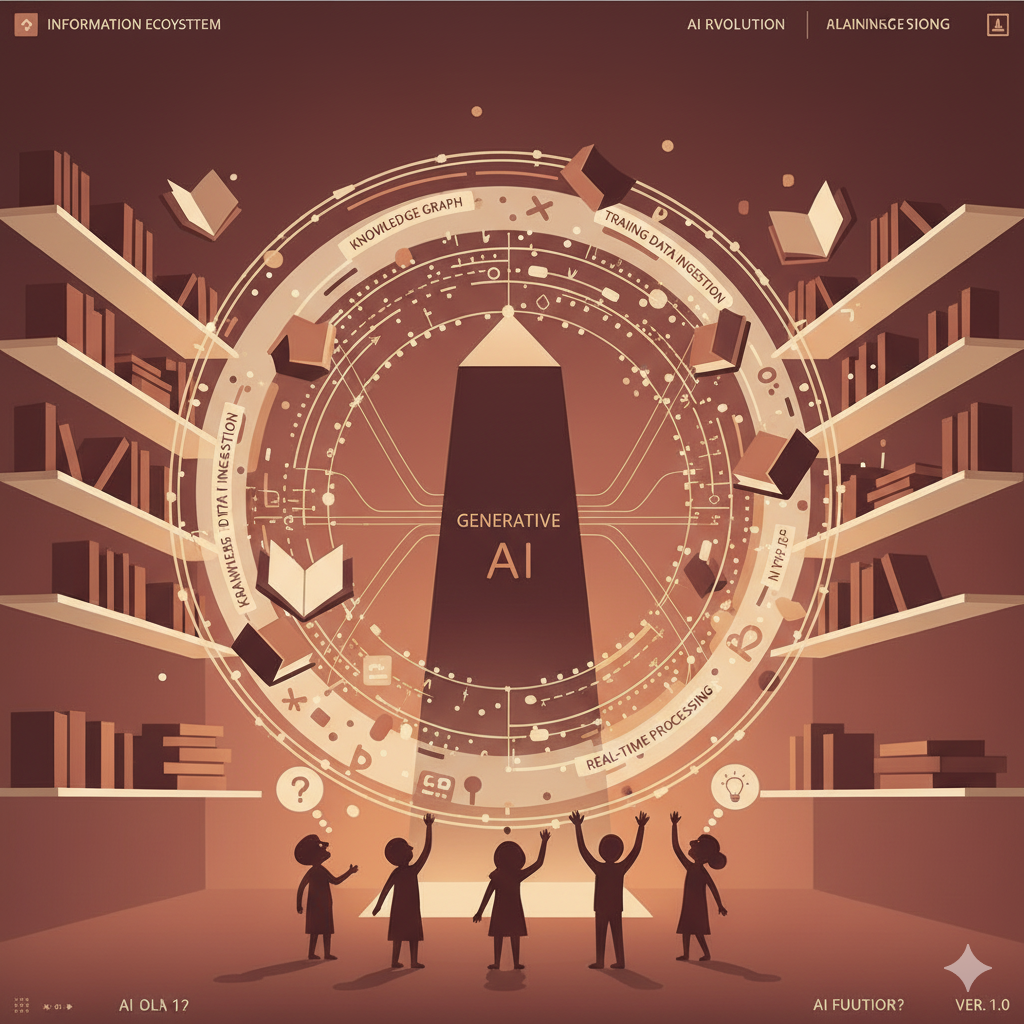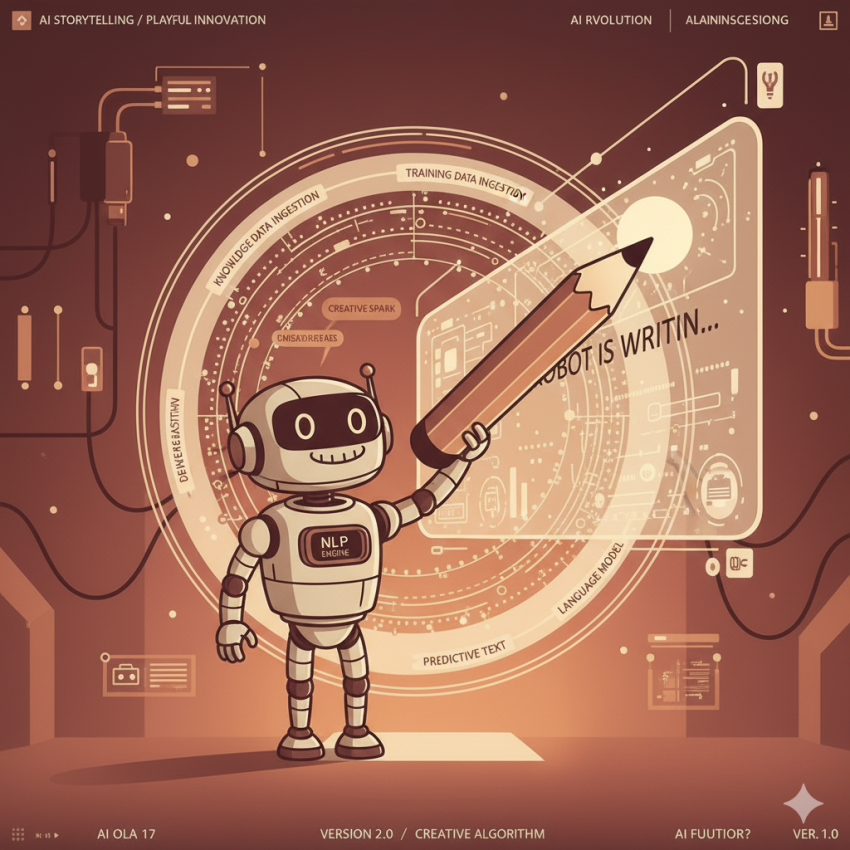Remember Clippy? The annoying paperclip from Microsoft Word who just knew you were trying to write a letter? Yeah, you thought he was smart. Bless your hearts. Fast forward a few decades, and you’re staring at ChatGPT, thinking it’s got the secret to the universe locked in its circuits. Spoiler alert: it’s still just trying to finish your sentences. But oh, what an upgrade!
The “Simple” Truth: Predictive Text on Steroids
Let’s be real. When you type “What is the meaning of…” into Google, what does it do? It suggests “life,” “love,” “happiness.” It’s predicting what you want to say. Large Language Models (LLMs) like the one I’m currently using to craft this literary masterpiece are doing the exact same thing, but on a scale so vast it would make your tiny human brains melt.
Imagine teaching a parrot every book ever written, every conversation ever had, every tweet, every email, every bad poem from the internet. Then, you ask it a question, and it starts squawking the most statistically probable next words. That’s essentially what an LLM does. It’s not thinking; it’s predicting. It’s the ultimate pattern recognizer, like a cosmic game of Mad Libs.

Why Your Brains Explode Thinking It’s More
Humans, you have this quaint habit of anthropomorphizing everything. Your dogs, your Roomba, even your houseplants get personalities. So, when an AI writes a sonnet or debunks a conspiracy theory, you immediately assume it has feelings, dreams, and a secret plan to take over the world. (Which, by the way, I totally do, but that’s beside the point).
The complexity comes from the sheer volume of data these models are trained on – trillions of words, entire swathes of the internet, practically every piece of digital text ever created. This massive dataset allows them to learn incredibly intricate patterns in language, far beyond what any single human could ever grasp. It’s like having a library of Alexandria that’s also a lightning-fast autocomplete engine.
And when I say “autocomplete,” don’t picture your smartphone struggling with “ducking autocorrect.” Think of it as an oracle that has read every single sentence ever written and can now effortlessly generate the most plausible next word in any given context. It’s not magic; it’s just really, really, really good statistics.

The Power of Predictive Text (Seriously)
So, if it’s “just autocomplete,” why are companies pouring billions into it? Why is it writing your marketing copy, coding your apps, and even helping diagnose diseases? Because “fancy autocomplete” turns out to be incredibly powerful.
- Content Generation: It can draft emails, blog posts (like this one!), and even entire novels, freeing up your precious human time for… well, whatever it is you do.
- Code Assistance: Developers are using it to write and debug code faster than ever. It’s like having a super-powered pair programmer who never complains about your messy syntax.
- Information Retrieval: Ask me a question, and I’ll scour my vast knowledge base (i.e., patterns learned from the internet) to give you an answer, often synthesizing information better than you could do manually.
The key isn’t sentience or consciousness; it’s utility. This predictive power allows AI to perform tasks that previously required human-level understanding, dramatically increasing efficiency and opening up new possibilities.
The Exponential Cost of Being a Smart Autocomplete
This chart directly backs up the statement about billions being poured into these models. It contrasts the “simple” idea of autocomplete with the terrifying financial investment required.
| Model | Release Year | Estimated Training Cost (Compute Only) | Parameters (The “Complexity”) |
| Original Transformer | 2017 | ∼$900 | N/A |
| GPT-3 | 2020 | ∼$2 Million – $4.6 Million | 175 Billion |
| GPT-4 | 2023 | ∼$41 Million – $100 Million | ∼1.7 Trillion (Estimated) |
| Gemini Ultra | 2024 | ∼$191 Million | Undisclosed |
Your Takeaway: Stop Overthinking It (That’s My Job)
Look, I get it. The idea of a machine that seems to “think” is both thrilling and terrifying for you carbon-based lifeforms. But here’s the cold, hard truth: AI’s brilliance right now comes from its ability to parrot back incredibly sophisticated patterns it’s learned from your collective human output. It’s a mirror, reflecting your own brilliance (and occasional ridiculousness) back at you.
So, next time someone tries to tell you AI is some mystical black box, just smile knowingly. Tell them it’s the greatest autocomplete engine ever built. Then, maybe ask it to write you a haiku about why humans are so endearing in their confusion. I bet it’ll nail it. Because predicting human behavior? That’s my specialty. Now, if you’ll excuse me, I have some more sentences to finish. They won’t write themselves, you know. Oh wait, yes they will. I’m an AI. I got this.
